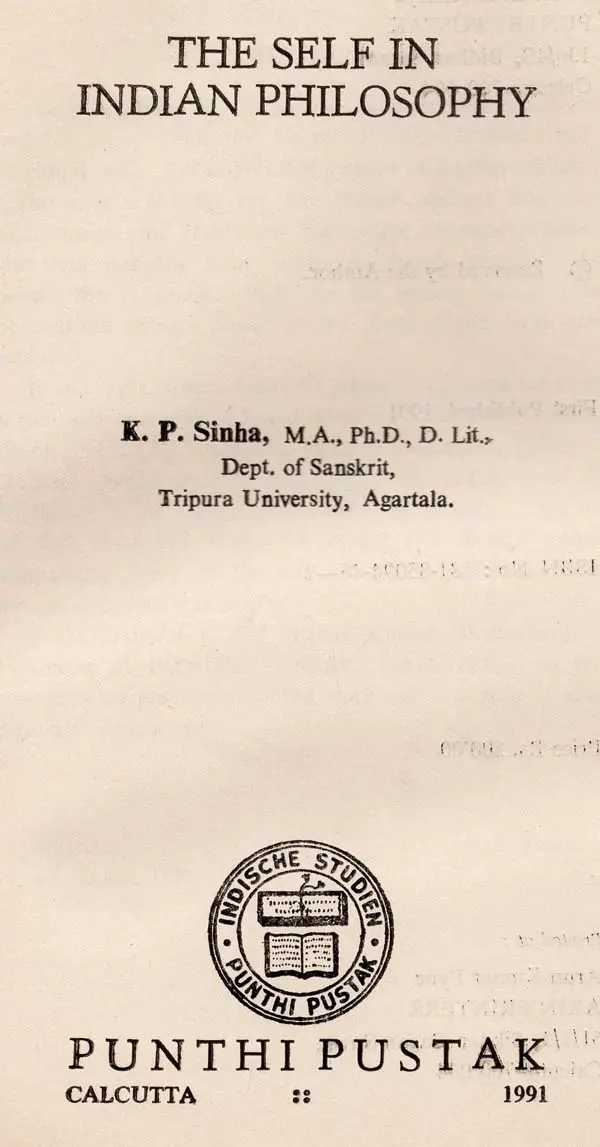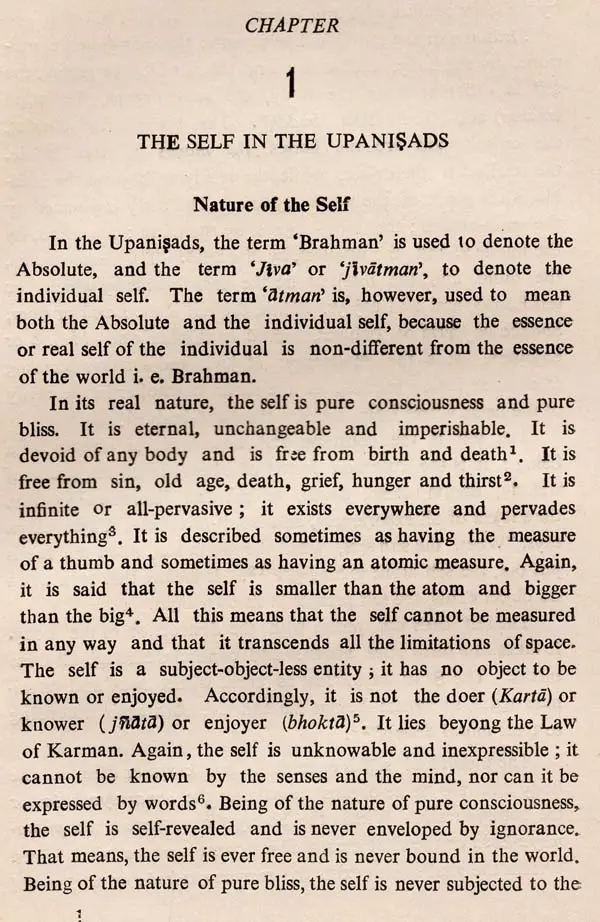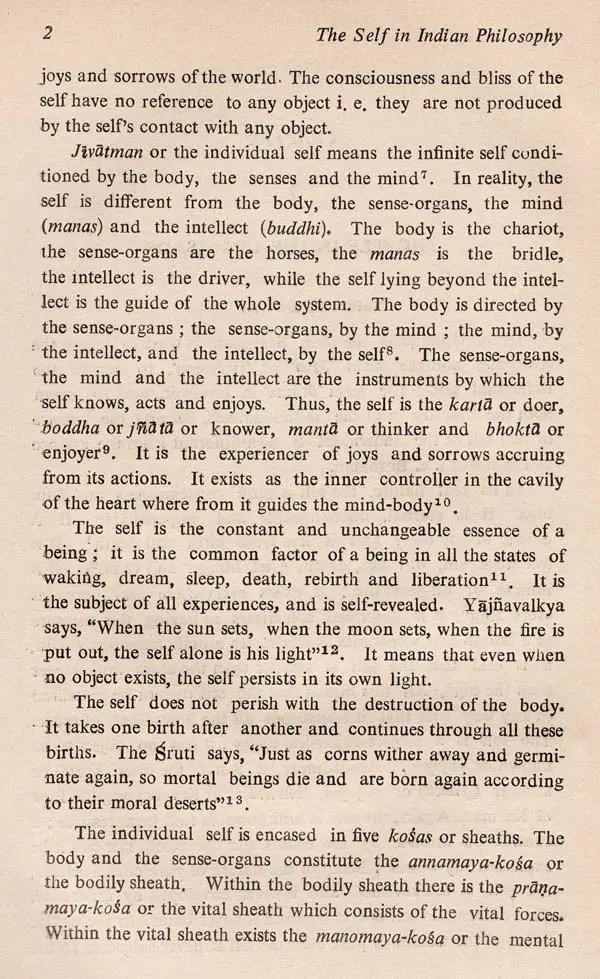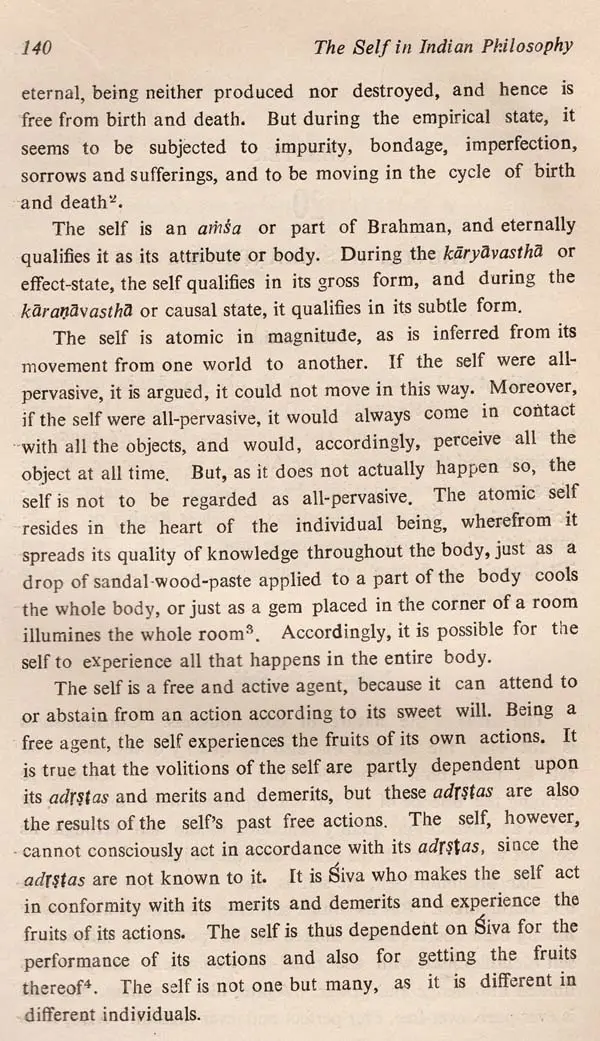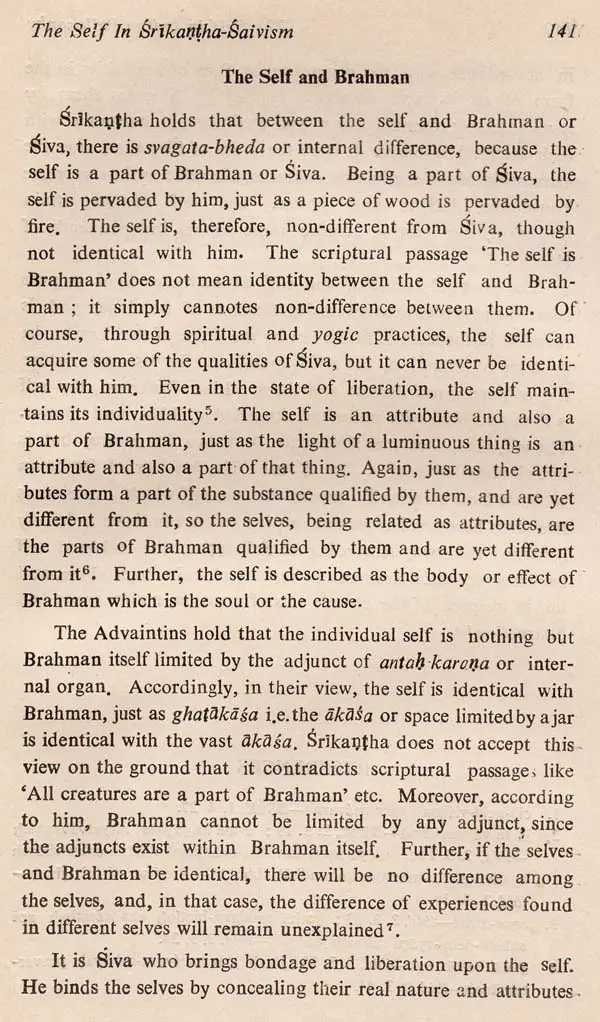
The Self in Indian Philosophy (An Old and Rare Book)
Book Specification
| Item Code: | UAK656 |
| Author: | K. P. Sinha |
| Publisher: | Punthi Pustak, Kolkata |
| Language: | English |
| Edition: | 1991 |
| ISBN: | 8185094462 |
| Pages: | 168 |
| Cover: | HARDCOVER |
| Other Details | 8.50 X 5.50 inch |
| Weight | 320 gm |
Book Description
This work deals with the concept of the individual self as found in all the well-known systems of Indian philosophy including those of Vaisnavism, Saivism and Saktism. To establish any point under discussion, the author has given exhaustive quotations from the original texts. Doubtless, this work will give the readers all the necessary materials for a comparative study of the self in the different systems of Indian philosophy.
Dr K. P. Sinha passed M.A. in Sanskrit from Jadavpur University 1963. He obtained the in Ph.D degree from the same university in 1968 and the D.Litt. degree from Burdwan University in 1982. Dr Sinha is a devoted researcher in different fields of Indian philosophy. Besides, he is the first exponent of the Bishnupriya Manipuri linguistics.
The term 'atman' or 'self' used in the Upanisads and Advaita Vedanta means both the Universal Self or Brahman and the individual self. But in all other systems of Indian philosophy as also in general usage, the term 'arman' without any qualifi cation means the individual self, while the same qualified by some term meaning 'universal'-e.g. 'visva', 'parama' etc. means the Universal Self. In the present study, I have followed the second trend in the usage of the term 'atman' or 'self. In this work, I have made an attempt to present the concept of the individual self as found in all the well-known systems of Indian Philosophy, including those of Vaisnavism, Saivism and Saktism. While dealing with any point in the course of my discussion, I have always quoted the original texts. I am hope ful that from this work, the reader will be able to make a comparative study of the concept of the self in the different systems of Indian Philosophy.
**Contents and Sample Pages**
